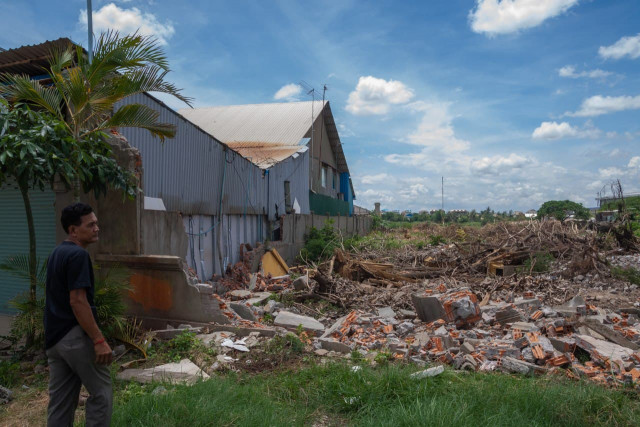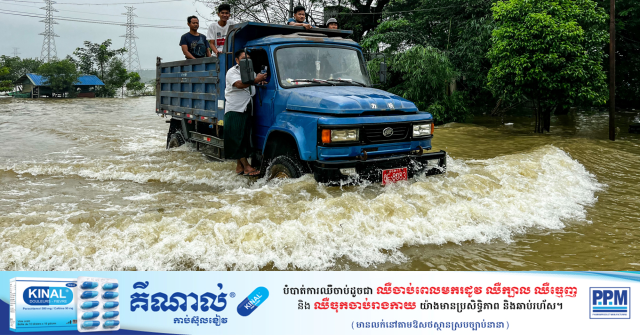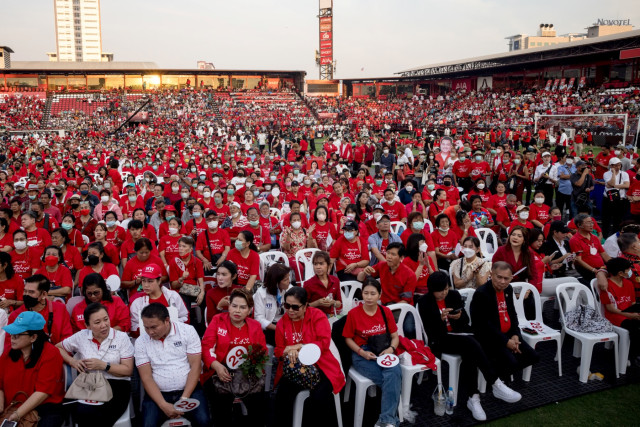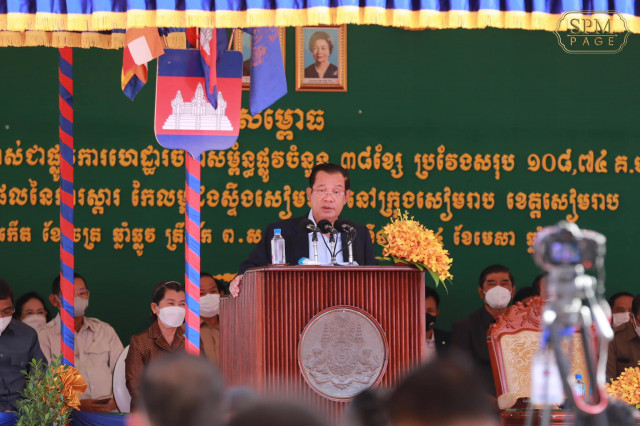Communities Evicted During Pandemic

- By Teng Yalirozy
- March 16, 2022 2:10 PM
Government put its interests first: NGO
PHNOM PENH--At least 11 communities from the Phnom Penh region were evicted or notified of eviction during the COVID-19 pandemic, says urban land rights NGO Sahmakum Teang Tnaut (STT).
STT on Monday released a new research study entitled “COVID-19 and the Help Provided,” which assesses government actions in response to community requests for help during the pandemic.
“This finding demonstrates that the government prioritized its own agenda over the health, safety and right to housing of communities evicted or issued with notices to evict,” the study says.
In 2020, when COVID-19 first hit Cambodia, communities submitted five key requests to the government, including distribution of preventive medical supplies to the most vulnerable; suspension of debt to MFIs, banks, and private money lenders; suspension of rents and all taxes on sales; stay-at-home payments; and relocation and eviction issues.
However, the study found that not all the requests, especially to stop evicting communities, met a response.
STT director of urban rights Seang Muoylay said eviction during the pandemic was not appropriate and should not have happened because it only added a burden to people who had lost their jobs and faced a decline in income.
He said $500 and a 4-meter-by-14-meter plot of land were not appropriate compensation and could not ensure and secure their lives after leaving their former properties.
“How can they use this compensation to solve life's problems? And how can they build an appropriate strong wooden house on the area of a 4-meter-by-14-meter plot of land?” Muoylay said.
“So, some people had to borrow more money from banks to build stone houses, leading them to more debt. Moreover, how can they live on $400 to $500?”
Forced to relocate, children had to change schools for which more money was needed. People needed a lot of money for a new business, house repairs, essential materials and daily necessities.
“This does not take into account that some communities have been evicted and the authorities have not prepared the main infrastructure such as clean water, electricity and roads for them. I think it is very difficult for the people,” Muoylay said.
Ming Mom, who moved to a new plot given by the government, said that during negotiations citizens asked for appropriate infrastructure and enough time to pack before leaving their old place.
But the authorities seemed to rush everything and the citizens lost some of their property, while the infrastructure was not good.
Mom lived at Banteay Sloek village in Chamkar Morn district of Phnom Penh, where the authorities ordered 300 families to relocate to Northern Vihear Suork commune in Kandal province.
Eighty-seven villagers moved in July last year but she did not know about the rest.
“They wanted to come too, but their names were not on the list,” Mom said.
Ming Mom said she had to spend $200 on a water meter. Water in the area was expensive, with one cubic meter costing 2000 riel or roughly $0.50. t was not clean and smelled like lake water and caused skin problems in her family.
“Water and electricity are expensive, and since COVID-19 is still lingering in Cambodia, it is difficult for us to find jobs and do business,” she said, adding that there are fewer customers now and her boiled potato business might collapse.
Phnom Penh Municipal Governor Khuong Sreng and Deputy Governor Koeut Chhe could not be reached for comment.
The United Nations High Commissioner for Human Rights (OHCHR) recently released a report looking at 17 resettlement sites in Phnom Penh and eight provinces.
The “Study on the Human Rights Situation of Communities Living in Resettlement Sites in Cambodia” reports showed that the sites did not have sufficient infrastructure and services, in particular, provision of drinking water, sanitation, food security, roads, electricity, health and education services before communities were sent there.
OHCHR recommends that the government implements draft resettlement guidelines attached to the study and establishes inter-ministerial committees to address human rights situations and resettlement through a whole-government approach.
STT recommends the government develops an eviction policy that adheres to human rights standards and stops evicting communities without providing them with the option to seek legal assistance.
The 11 evicted communities cited by STT include Banteay Sloek, Boueng Chhouk A Community, New Airport, Samrong Tbong, Boeung Samrong, Preytea, Express way (Beoung Tamok), Stoeung Kambot, Chbar Ampov, Boeung Tompun and Boeung Tamok.















